Common Reasons Your Air Compressor keeps Tripping the Breaker

Having your air compressor trip the breaker can be frustrating and disrupt your work. Understanding the common reasons behind this issue can help you identify the problem and find a solution quickly. There are several factors that can contribute to your air compressor tripping the breaker, including electrical issues and mechanical faults.
One common cause is an electrical overload. If your air compressor is drawing more power than the circuit can handle, it will trip the breaker to prevent damage. This can happen if you have other high-powered appliances running on the same circuit, or if the circuit itself is not rated for the power requirements of your air compressor.
Another possible reason is a faulty motor. If the motor of your air compressor is not functioning properly, it can cause the breaker to trip. A worn-out motor or a motor with damaged parts can draw excessive current and overheat, leading to a breaker trip. Regular maintenance and inspections can help prevent motor-related issues.
Inadequate ventilation can also be a factor. Air compressors generate a significant amount of heat, and if they are not properly ventilated, the heat can build up and cause the motor to overheat. This can result in the breaker tripping. It is important to ensure that your air compressor has enough clearance around it and that the ventilation system is clean and unobstructed.
Lastly, a faulty pressure switch can cause the breaker to trip. The pressure switch is responsible for regulating the pressure in the air compressor, and if it is malfunctioning, it can cause the compressor to run continuously, putting a strain on the electrical system. Regularly checking and replacing the pressure switch, if necessary, can help avoid this issue.
In conclusion, there are several common reasons why your air compressor may be tripping the breaker. It is important to address the issue promptly to prevent further damage and ensure proper functioning of your air compressor. By understanding these common causes, you can troubleshoot the problem more effectively and find the appropriate solution.
Overloaded Circuit
An overloaded circuit is one of the common reasons why your air compressor keeps tripping the breaker. This occurs when there are too many devices or appliances connected to a single circuit, and the total electrical load exceeds the circuit’s capacity.
When an air compressor runs, it requires a significant amount of electrical power. If the circuit that the compressor is plugged into is already carrying a heavy load from other devices or appliances, it may not be able to handle the additional power demand of the compressor.
To determine if an overloaded circuit is causing your compressor to trip the breaker, you can check if other devices or appliances are being used simultaneously on the same circuit. If so, try unplugging some of them or redistributing the load to different circuits.
If you frequently experience an overloaded circuit when using your air compressor, it may be necessary to install a dedicated circuit specifically for the compressor. This will ensure that it has enough electrical capacity to run without tripping the breaker.
Faulty Safety Switch
A faulty safety switch in your air compressor can be a common reason for the breaker to trip. The safety switch is designed to protect the compressor from overheating and other potential dangers. However, if the safety switch itself is faulty, it may falsely trip the breaker and shut down the compressor.
There are a few key signs that indicate a faulty safety switch. Firstly, if the breaker keeps tripping consistently when using the air compressor, it is likely due to a faulty safety switch. Additionally, if the safety switch feels loose or doesn’t click into place properly, it may indicate a problem.
If you suspect that the safety switch is faulty, it is important to have it inspected and potentially replaced by a professional. They will be able to determine the exact cause of the tripping and address it accordingly. It is important not to try to fix or replace the safety switch yourself, as this can be dangerous and may result in further damage to the compressor or electrical system.
In some cases, a faulty safety switch can be repaired by a professional. However, if the switch is severely damaged or if it continues to cause the breaker to trip even after inspection and repair, it may need to be replaced entirely.
Regular maintenance and inspection of the safety switch can help prevent issues and ensure that it functions properly. It is also important to use the air compressor within its recommended operating parameters to avoid putting unnecessary strain on the safety switch and other components.
Inadequate Wiring
One common reason why your air compressor may keep tripping the breaker is inadequate wiring. This refers to the electrical wires that connect your air compressor to the circuit breaker in your home or workplace. If the wiring is not properly installed or if it is not able to handle the electrical load of the air compressor, it can cause the circuit breaker to trip frequently.
There are a few potential causes of inadequate wiring. First, the wiring may be too small or not designed to handle the current required by the air compressor. This can lead to overheating of the wires, which triggers the circuit breaker to trip as a safety measure. Second, the wiring may be damaged or worn out, which can also lead to overheating and tripping of the breaker.
To ensure that you have adequate wiring for your air compressor, it is important to consult with a qualified electrician. They can assess the electrical load requirements of your air compressor and determine if the existing wiring is sufficient. If not, they can recommend and install the appropriate wiring to ensure safe and efficient operation of your air compressor without tripping the breaker.
In addition to inadequate wiring, there may be other factors that contribute to your air compressor tripping the breaker, such as a malfunctioning pressure switch or a faulty motor. It is important to address these issues promptly to prevent further damage to your air compressor and electrical system.
Motor Overheating
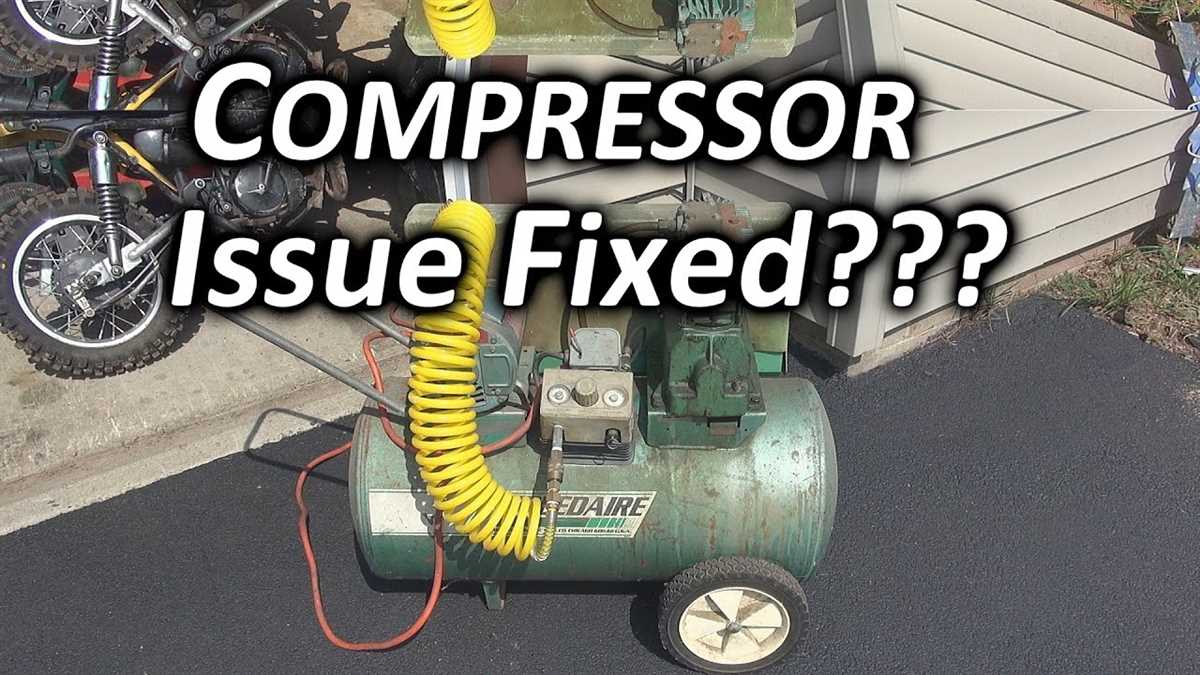
One common reason your air compressor may be tripping the breaker is because the motor is overheating. When the motor overheats, it can cause the breaker to trip as a safety precaution. This can happen for several reasons:
Inadequate ventilation
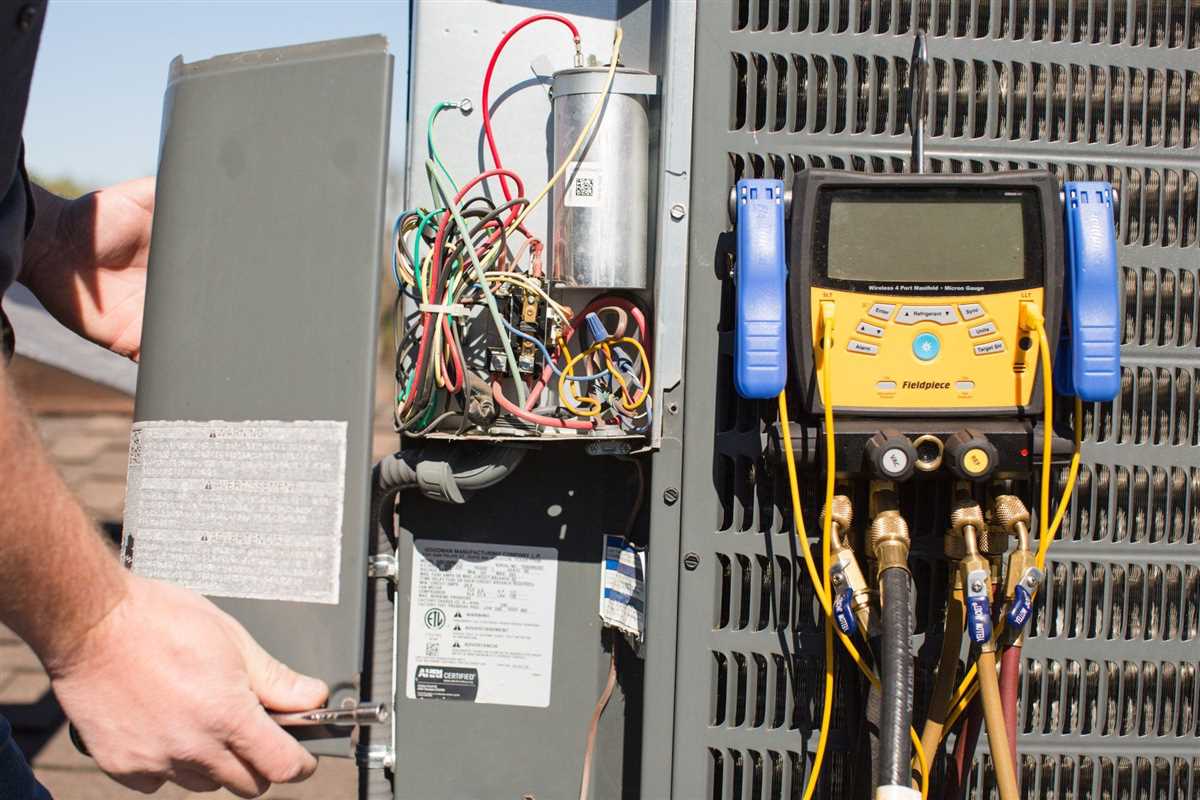
If your air compressor is not getting enough airflow, the motor can quickly overheat. It is important to ensure that the compressor is located in a well-ventilated area, with enough space around it for proper air circulation.
Clogged air filters
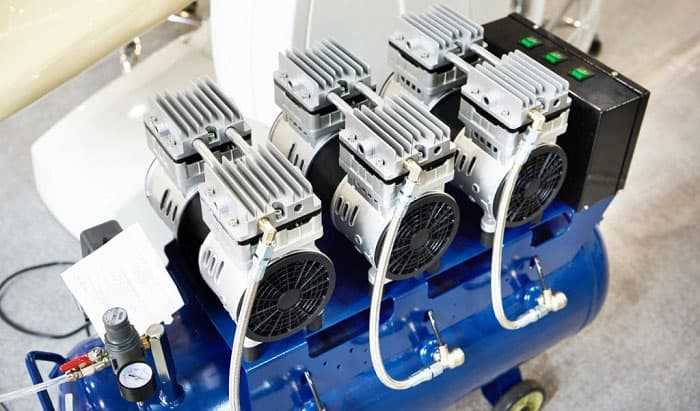
Another potential cause of motor overheating is clogged air filters. These filters are designed to prevent dust and debris from entering the motor and cooling system. If they become clogged, air flow can be restricted, causing the motor to overheat.
Lack of lubrication
A lack of proper lubrication can also lead to motor overheating. The moving parts of the motor require lubrication to reduce friction and heat. If the motor is not properly lubricated, the heat generated by the friction can build up, causing the motor to overheat.
To prevent motor overheating, it is important to regularly check and clean the air filters, ensure proper ventilation, and maintain the recommended lubrication schedule for your air compressor. Additionally, if you are using the compressor in a hot environment or for extended periods of time, you may need to take additional precautions to prevent overheating, such as providing additional cooling or adjusting the operating conditions.
Low Voltage Supply
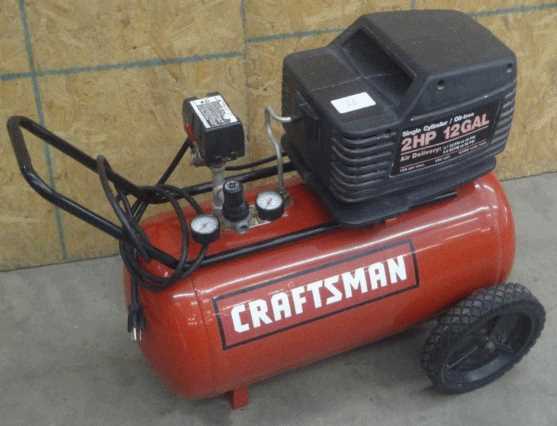
One common reason why your air compressor may be tripping the breaker is due to a low voltage supply. The voltage supplied to your compressor is crucial for its proper functioning, and if it is too low, the compressor may draw more current than the circuit breaker can handle, causing it to trip.
A low voltage supply can be caused by various factors, such as a weak electrical connection or a voltage drop in the wiring. It is important to ensure that your compressor is receiving the correct voltage as specified by the manufacturer. You can use a multimeter to measure the voltage at the outlet where the compressor is plugged in.
If you find that the voltage supply is below the recommended range, you may need to consult an electrician to investigate and resolve any issues with the electrical wiring or connections. They may need to upgrade the wiring or make adjustments to ensure a stable and sufficient voltage supply to the compressor.
Additionally, it is important to consider the power requirements of your compressor and ensure that the circuit breaker and wiring are properly sized to handle the compressor’s load. If the circuit breaker is too small for the compressor’s power requirements, it may trip frequently, especially if the voltage supply is already low.
Faulty Pressure Switch
A faulty pressure switch can be one of the common reasons why your air compressor keeps tripping the breaker.
The pressure switch in an air compressor is responsible for monitoring the level of pressure in the tank and turning the compressor on and off accordingly. If the pressure switch is faulty, it may not accurately detect the pressure levels, causing the compressor to run continuously or not turn on at all.
One possible issue with a faulty pressure switch is that it may not be properly calibrated. This means that it might have been set to turn on and off at incorrect pressure levels. As a result, the compressor may trip the breaker when the pressure levels exceed the switch’s set limit, even if the actual pressure in the tank is within a safe range.
Another potential problem with a faulty pressure switch is a defective electrical connection. The switch relies on an electrical circuit to send signals to the compressor motor, indicating when to turn on or off. If there is a loose or damaged connection, the switch may not be able to communicate effectively with the motor, leading to inconsistent operation and frequent tripping of the breaker.
Additionally, a pressure switch can wear out over time due to constant use or exposure to moisture and other environmental factors. This can result in the switch becoming less responsive or completely malfunctioning. If the switch is no longer able to accurately detect pressure levels, it may cause the compressor to overload or overheat, causing the breaker to trip.
To resolve issues related to a faulty pressure switch, it is recommended to consult a professional technician who can inspect and diagnose the problem accurately. In some cases, the pressure switch may need to be recalibrated or replaced to ensure proper operation of the air compressor and prevent further breaker tripping.
Incorrect Circuit Breaker Size
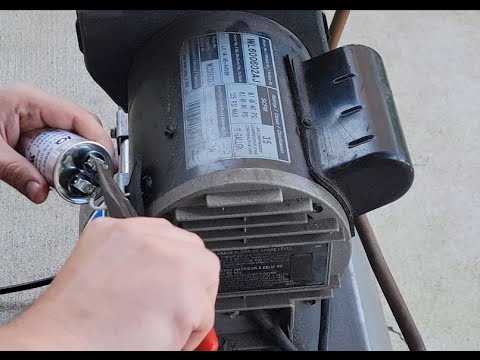
One common reason why an air compressor may keep tripping the breaker is because the circuit breaker size is incorrect for the power needs of the compressor. Circuit breakers are designed to protect electrical circuits from overloading and overheating. If the circuit breaker size is too low for the power requirements of the air compressor, it can trip frequently.
The power requirements of an air compressor are determined by factors such as horsepower, motor amperage, and duty cycle. It’s important to ensure that the circuit breaker is sized appropriately to handle the power demand of the compressor to avoid tripping.
If the circuit breaker is too small, it may be tripping due to the continuous draw of power from the compressor. This can be especially common if the compressor is being used for extended periods of time or if it is being used for heavy-duty applications. Upgrading to a higher amperage circuit breaker can help prevent tripping in these cases.
On the other hand, if the circuit breaker is too large for the compressor, it may not provide adequate protection against overloading and overheating. This can be dangerous as it can lead to equipment damage or even electrical fires. It is important to consult the manufacturer’s specifications and guidelines to determine the correct circuit breaker size for the air compressor.
In some cases, it may be necessary to consult an electrician to assess the electrical system and make any necessary changes to the circuit breaker size. It is important to always prioritize safety and consult professionals when dealing with electrical issues.
Electrical Interference
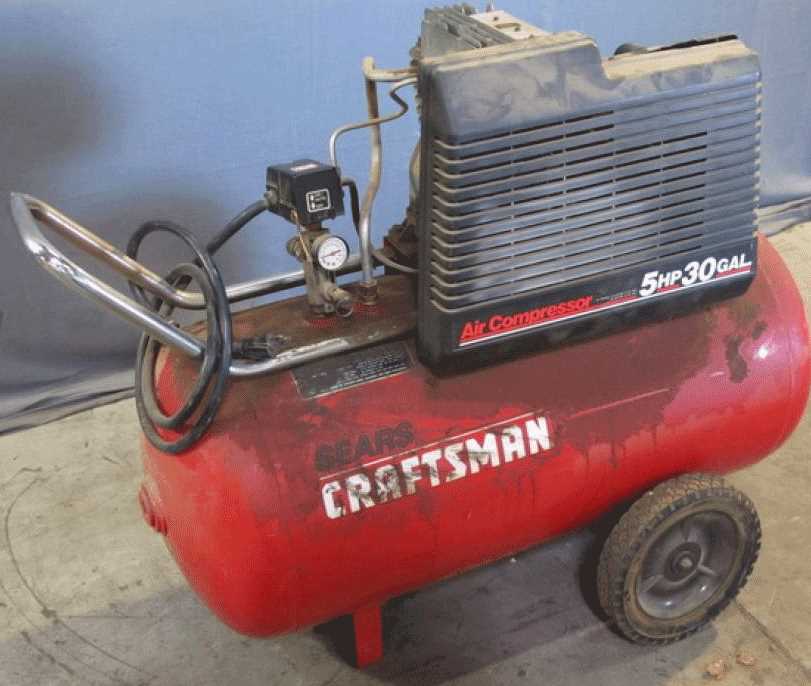
An air compressor tripping the breaker may be caused by electrical interference. Electrical interference refers to any disturbance in the electrical circuit that can affect the normal functioning of the air compressor and cause it to trip the breaker. There are several possible sources of electrical interference that can lead to this problem.
1. Power Surges
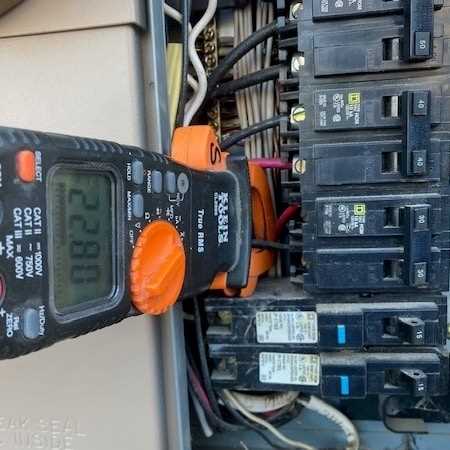
Power surges are sudden and brief increases in voltage that can occur in the electrical system. These surges can be caused by lightning strikes, utility switching, or even the operation of large appliances in the vicinity. When a power surge reaches the air compressor, it can overload the electrical circuit and cause the breaker to trip as a safety measure.
2. Electromagnetic Interference
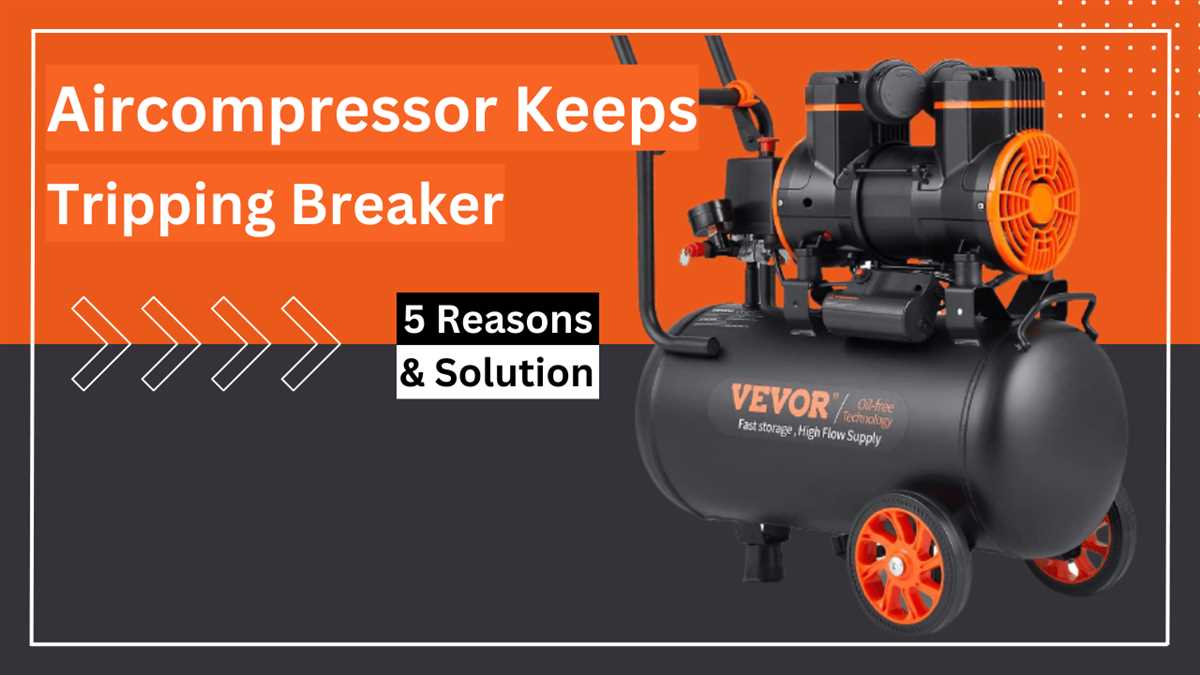
Electromagnetic interference (EMI) refers to the disruption of an electrical circuit due to the presence of electromagnetic signals. This interference can come from nearby electronic devices, power lines, or even radio frequencies. When EMI affects the air compressor, it can disrupt the normal flow of electricity and trigger the breaker to trip.
3. Faulty Wiring
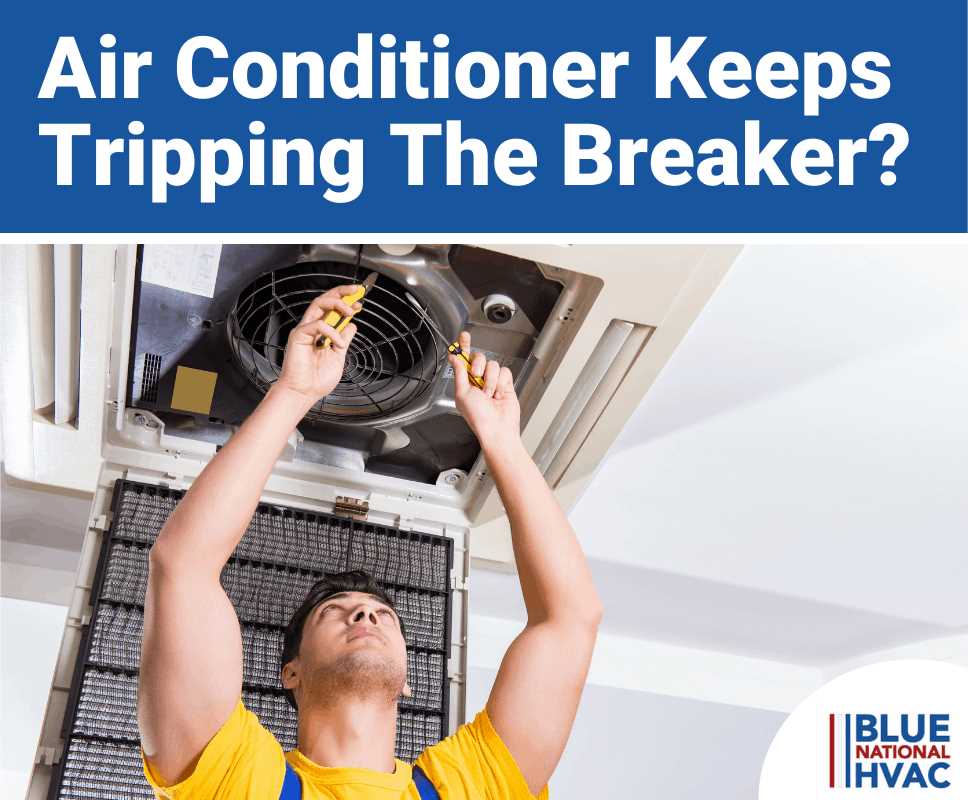
Faulty wiring in the air compressor system can also lead to electrical interference. This can include loose connections, damaged wires, or improper grounding. When the electrical circuit is compromised, it can cause irregularities in the flow of electricity and result in the breaker tripping.
4. Overloaded Circuit
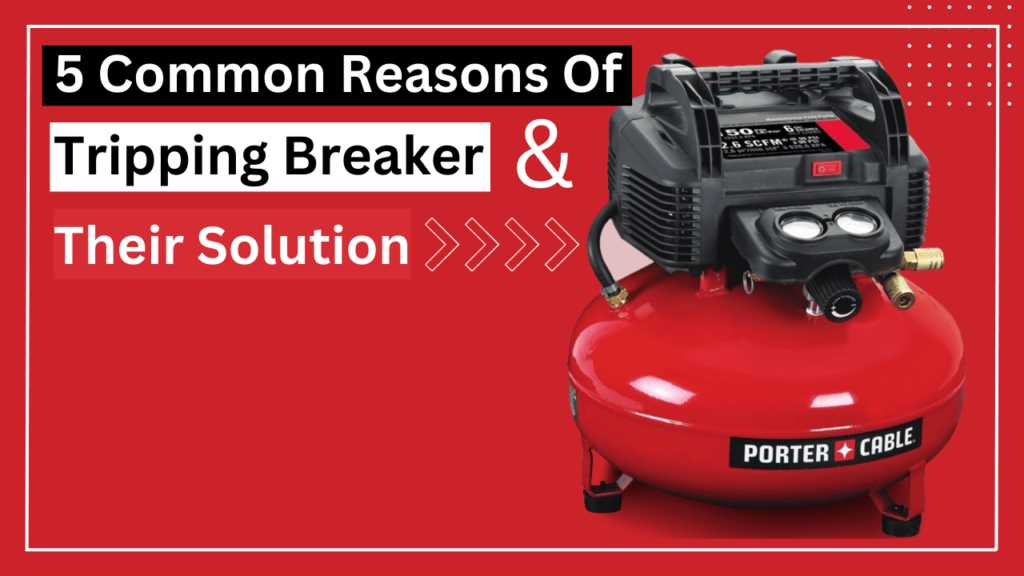
An overloaded circuit occurs when there are too many electrical devices connected to the same circuit, drawing more current than it can handle. If the air compressor is connected to an overloaded circuit, it can cause the breaker to trip due to excessive current flowing through the circuit.
Overall, it is important to address any electrical interference issues that may be causing your air compressor to trip the breaker. This may involve checking for power surges, reducing electromagnetic interference, ensuring proper wiring, and avoiding overloaded circuits. Consulting an electrician may be necessary to identify and resolve any electrical interference problems.
FAQ:
Why does my air compressor keep tripping the breaker?
There are several possible reasons why your air compressor keeps tripping the breaker. One common reason is that the compressor is drawing too much power, exceeding the maximum capacity of the breaker. Another possible reason is a short circuit or ground fault in the wiring of the compressor. Finally, an overheating motor or faulty pressure switch can also cause the breaker to trip.
How can I determine if my air compressor is drawing too much power?
To determine if your air compressor is drawing too much power, you can check the specifications of the compressor and compare them to the capacity of the breaker. The specifications should include the maximum amperage or wattage the compressor can draw. If the compressor’s power draw exceeds the capacity of the breaker, it may be necessary to upgrade to a higher capacity breaker.
What should I do if there is a short circuit in the wiring of my air compressor?
If there is a short circuit in the wiring of your air compressor, the first step is to turn off the power to the compressor. Then, you can inspect the wiring for any visible signs of damage or melting. If you identify a damaged wire, it will need to be repaired or replaced. It may be necessary to consult a professional electrician to handle the repair if you are not experienced in working with electrical systems.
Why does my air compressor’s motor keep overheating?
There are a few possible reasons why an air compressor’s motor may be overheating. One common reason is a lack of proper ventilation or airflow around the motor. Another possible reason is a dirty air filter, which can restrict airflow and cause the motor to overheat. Additionally, a malfunctioning motor or a problem with the oil level in the compressor can also lead to overheating. It is important to identify and address the underlying cause of the overheating to prevent damage to the motor.
How can I fix a faulty pressure switch on my air compressor?
If you believe that the pressure switch on your air compressor is faulty, the first step is to turn off the power to the compressor. Then, you can remove the pressure switch cover and inspect the contacts for any signs of damage or wear. If necessary, you can replace the pressure switch with a new one. It is recommended to consult the manufacturer’s instructions or seek professional assistance if you are unsure about how to properly install a new pressure switch.
Video:











